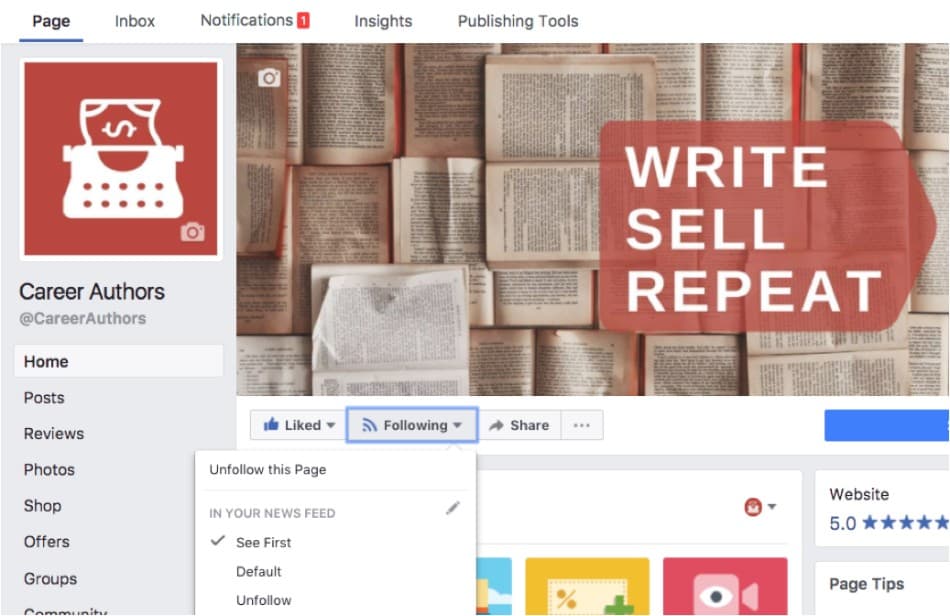Those “Like” and “Follow” counts you’ve been working so hard to grow on Facebook? The numbers you’ve watched inch ever higher, week by week? Those symbols of how much people like you?
They’re lies. False promises. Empty statistics.
Get fewer lies by skipping a fan page
This discussion applies (mostly) to Facebook Fan Pages, not Personal Profiles. Your profile is your personal account, where you see your grandkids’ photos and where you stalk your high-school crush. Even for many professionals, having only a personal profile is sufficient on Facebook. If you don’t mind interleaving professional and personal posts on your profile (and in the age of personal branding we’re all becoming more and more comfortable blending the two), then let it be. Don’t create a fan page.
Don’t make a fan page, and the numbers won’t lie to you so much.
It’s also as simple as this: it’s hard enough maintaining meaningful engagement on just one page – your personal profile. Why double your workload if you don’t absolutely have to?
You might need a fan page if …
But you need a fan page if any of the following apply:
- You have (or aspire to have) more than 5000 friends or followers – that’s Facebook’s limit on profile friends
- You represent a multi-person activity and need to reflect that
- You want to advertise, or your content is actively commercial
- You’re not comfortable combining “real” friends and “professional” friends
And if you have a fan page, then you need to understand what its Facebook like count numbers tell you.
Your Facebook “Like” count lies to you
The biggest lie is that all of your followers see your posts. Most followers don’t. Your organic Facebook reach is probably around 5%, and likely lower, especially as your Facebook like count rises. So if you have 1000 followers, perhaps 50 even see an average post of yours in their feed.
This happens because there’s too much content to show, so Facebook’s AI has to curate each person’s feed individually, showing them what it thinks is most valuable. That’s usually not your “buy my book” promo.
There are numerous ways you can increase your reach. One is to pay.
Boosting your posts or running ads on occasion is a necessary part of any author’s digital strategy.
And Facebook has the best ad targeting on the planet. Thinking of Facebook as an ad platform instead of a social media platform is becoming increasingly useful. But here’s an awful truth about boosting your posts: Facebook charges you based on your Like count. So if you’ve accumulated lots of “Likes,” then your ads cost more – even if all those “Likes” don’t represent real, engaged fans. The second biggest lie is that all Likes help. They don’t. Likes make advertising more expensive.
But besides ads, there are plenty of ways to boost your organic (non-paid) reach:
- Post only the good stuff. Things that get liked and shared more get shown to more people.
- Use video. Our monkey-brains are drawn to motion, and a recent Quintly study shows 186% increase in engagement with video.
- Interact. Respond to comments in a timely fashion. Create the conversation that makes social media social.
- Encourage newsletter sign-ups. The only reliable way for your most ardent fans to see all of your content is for you to hand-deliver it to their email inboxes.
- Ask. Yes, ask your followers to see your posts first in their own personal news feeds.
To be seen more, just ask
That last point in the list above merits an illustration. You can (and should) ask your followers to change their notifications for your site. If they click the “Following” button on your site’s page, each of your followers can select the “See First” option.

This is worth doing. As individual Facebook users, we have some control over our feeds, and it’s your obligation as a page owner to educate your super-fans enough to make sure they exercise that control so that they can see your posts.
How to make your Facebook numbers tell the truth
For every fan page you administer (and it’s likely just one – your professional author page), you can view statistics for your actual engagement. These are available under the “Insights” tab. Here is truth: about who has viewed your page, who reported your posts as Spam, how well your ads are working, and much more. Here are the meaningful statistics, and among all those stats, perhaps the best shorthand for effectiveness is “Post Engagements,” a total of likes, comments, shares, and other actions.

If you are going to watch any Facebook numbers at all, watch that one.
How much is enough?
The question of “How much is enough?” really means, “When can I get off the social-media hamster wheel?” Are 1000 Facebook followers enough? 2000 “Post Engagements”? 10,000 page likes?
Enough is when you’ve had enough.
Because here’s the harsh and simple truth: social media does not sell books.
If that’s heresy, so be it. (But if social doesn’t sell, then what does? This: write good books and build a mailing list.)
Social media can solidify your brand. It can help humanize you and create connections. It can introduce you to new friends. It can keep you entertained.
It can also suck your soul into a never-ending voracious black hole of attention-seeking obsession, turning you into one of the zombie “look at me!” horde, all the while giving you morphine-drip opioid false boosts from every little like and retweet and share and pin.
But those boosts don’t pay the rent, so pay them no mind. Especially when they’re lies.
At Career Authors we use social media to engage in the conversations that help you write better and sell more books. We do it for the people, not for the numbers. And that happens here.




